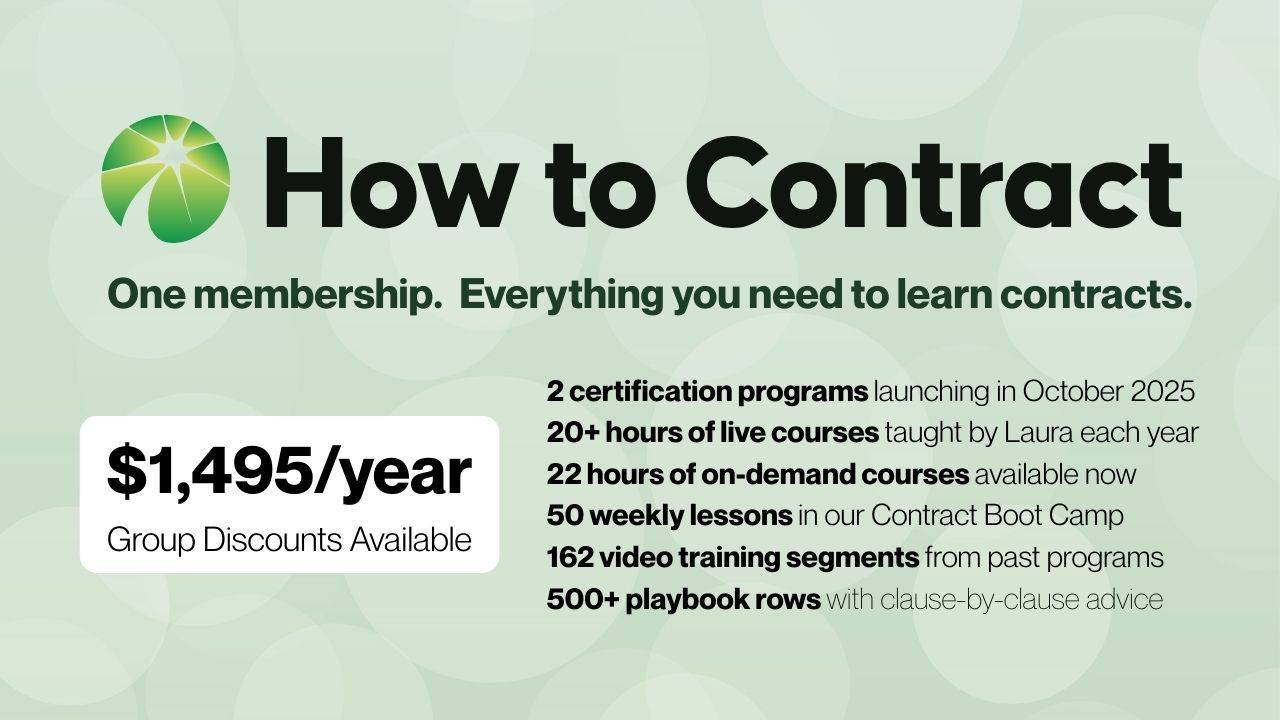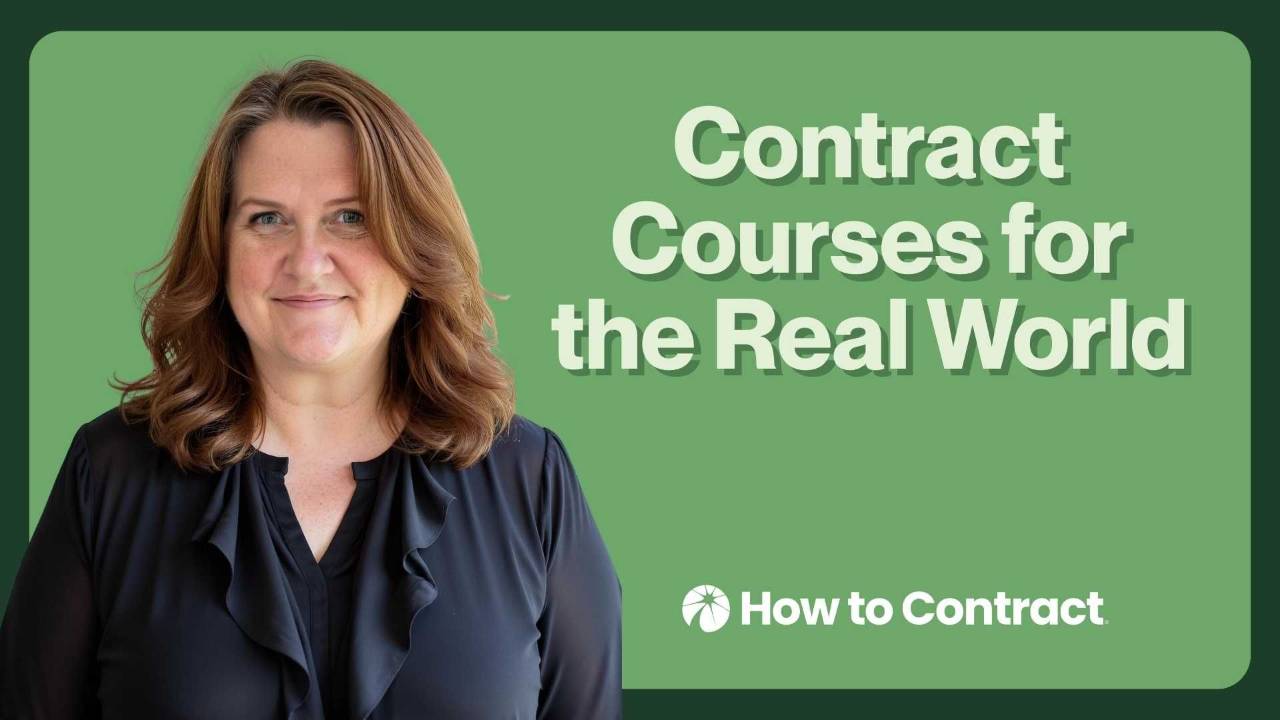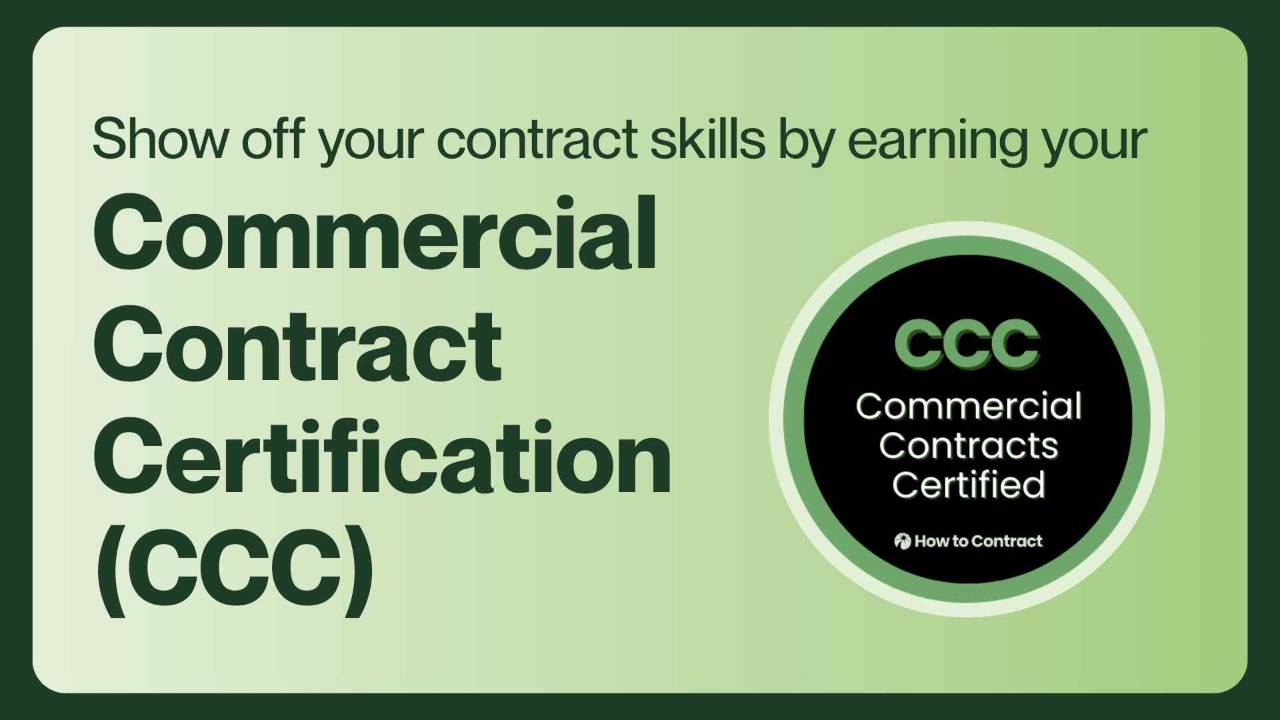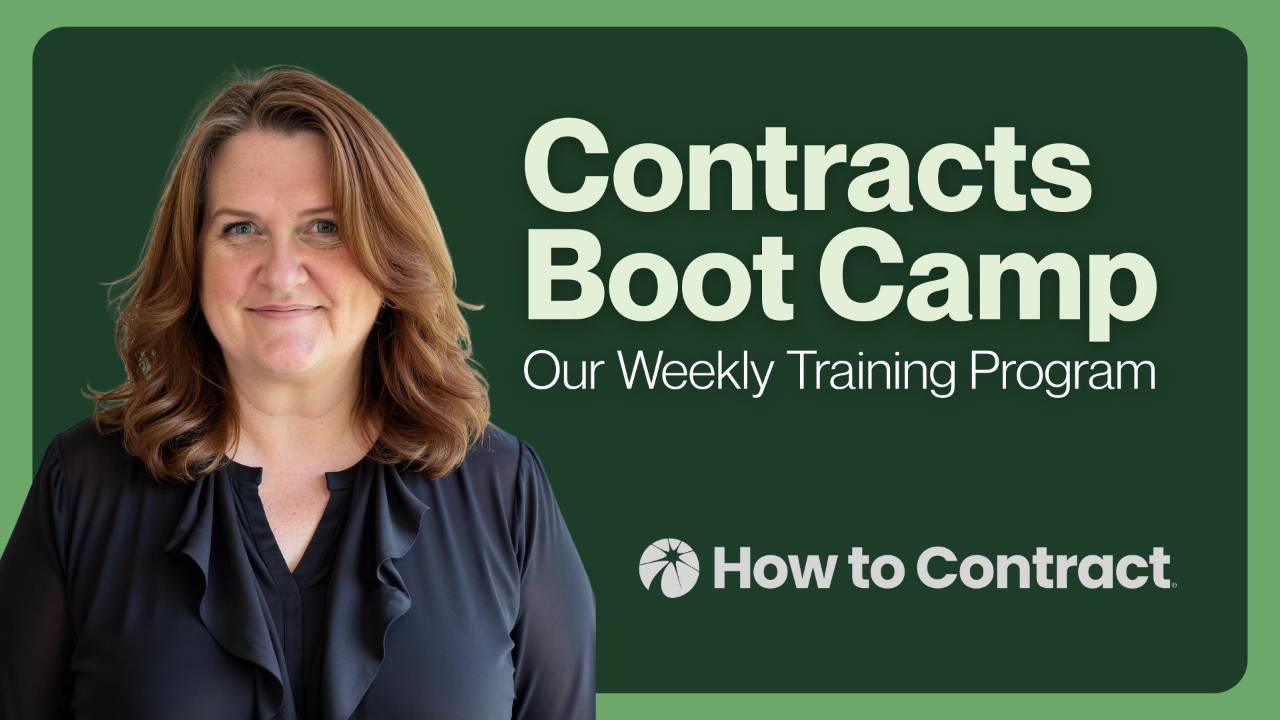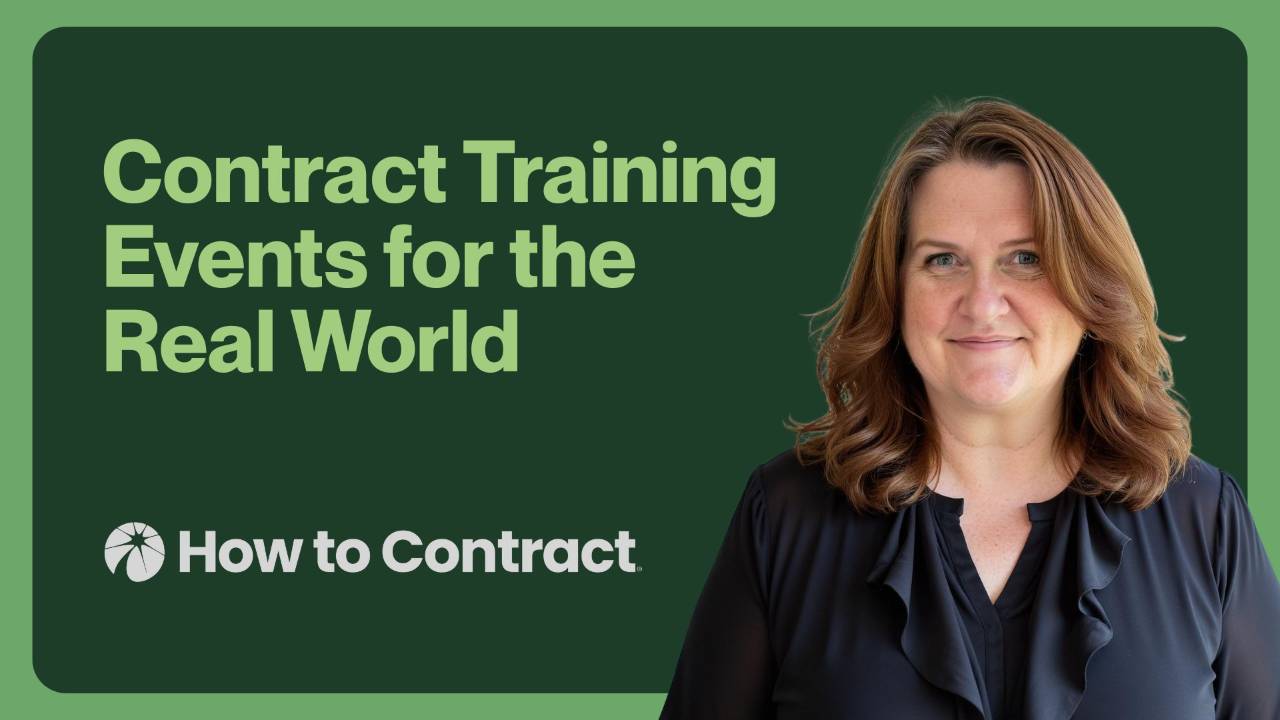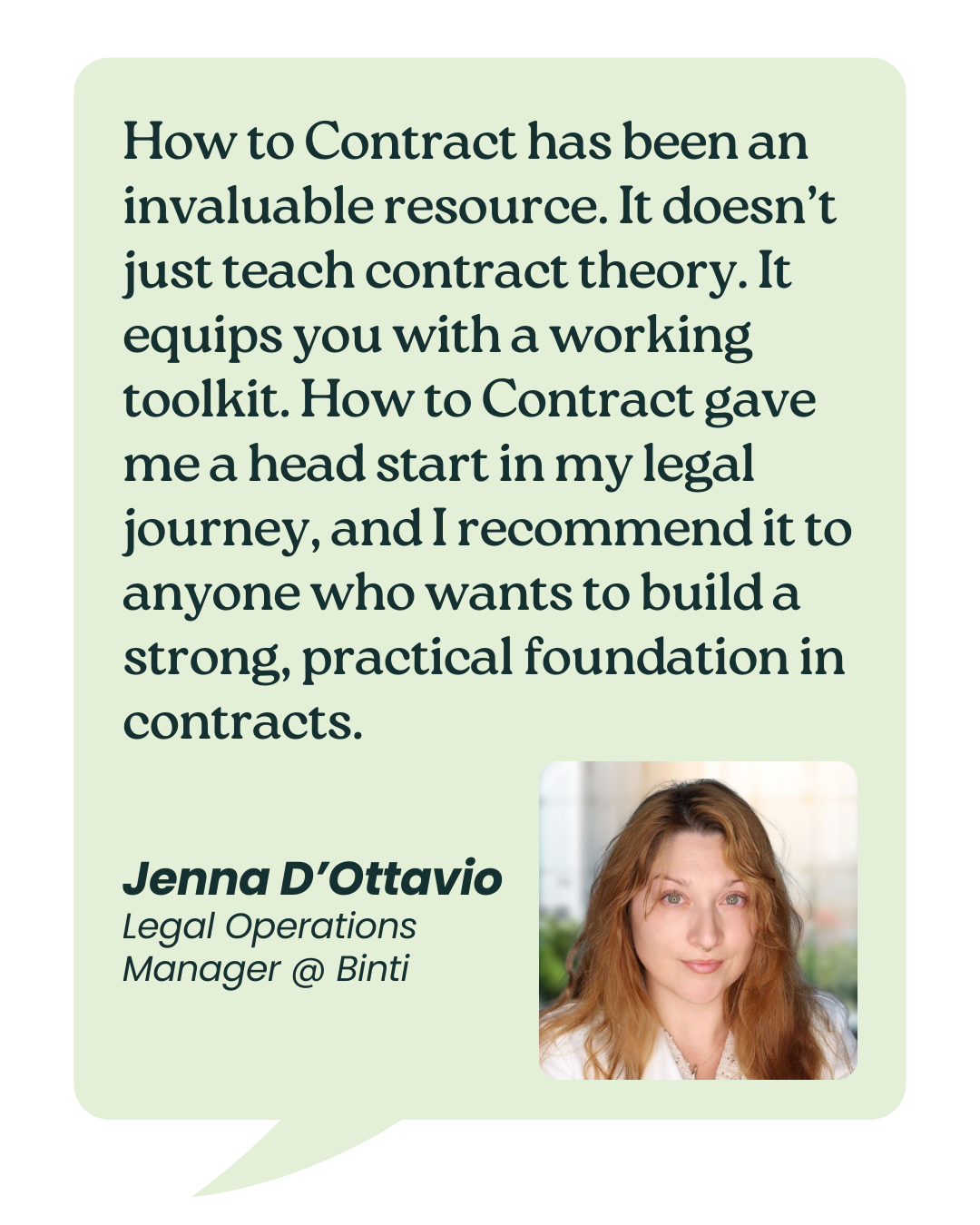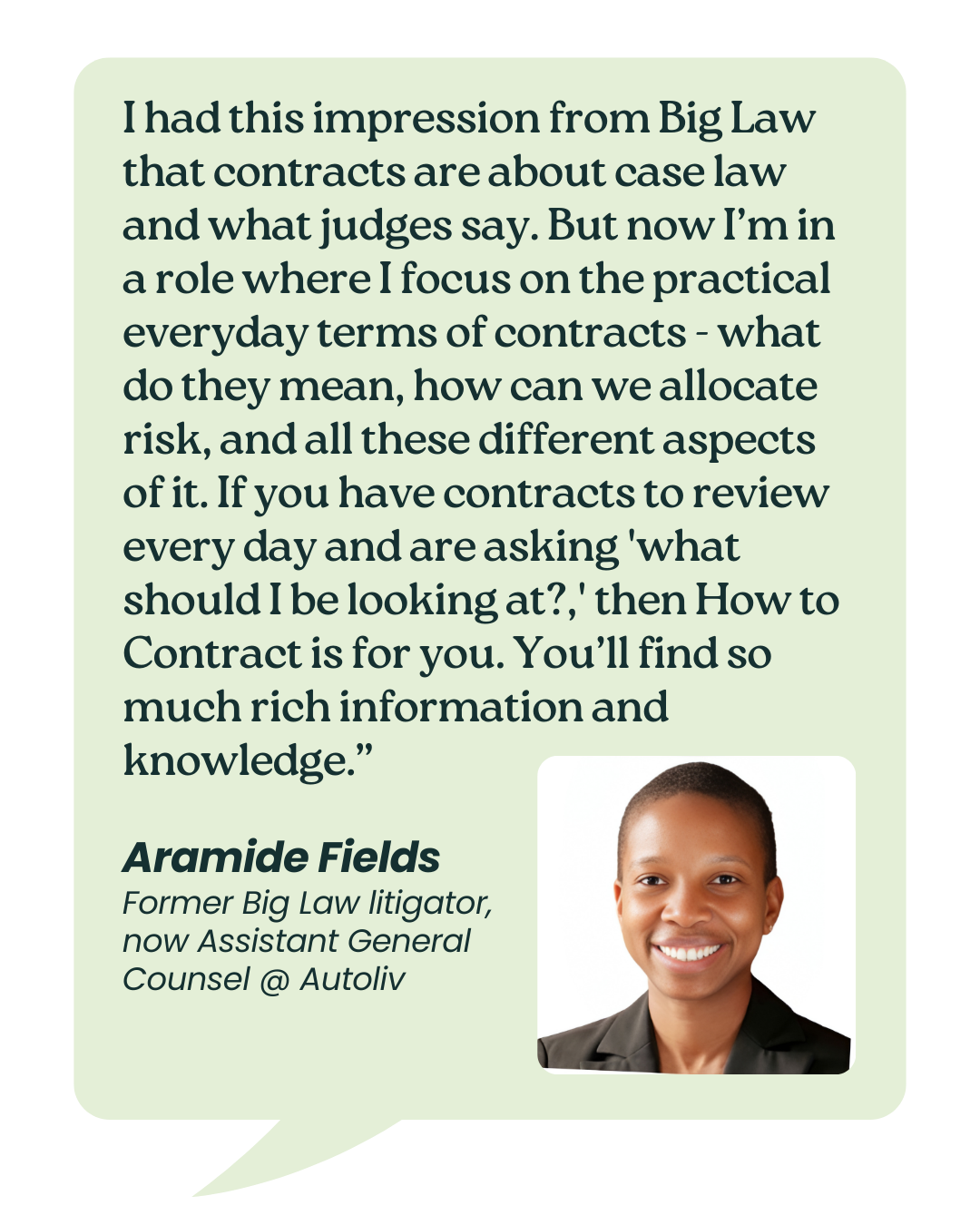
How I Contract: An Interview With Sarah Irwin, CEO at ITGC Consulting Ltd
We interviewed Sarah Irwin, CEO at ITGC Contracting Ltd., as part of the How I Contract interview series with experienced contract lawyers and professionals. We share their insights and advice for lawyers and professionals working with contracts.
The Journey to a Career in Contract Law
Can you tell us a story about what brought you to this specific career path? How long have you been working with contracts?
Sure! I joined Tines (Irish cybersecurity no-code automation scale-up) 2 years ago as GC and first legal hire, tasked with building out the in-house function from scratch as we rapidly scale.
Like many GCs, my career path has been non-linear. I started off as a barrister in England (where I grew up) and moved back to Ireland (where I was born) 10 years ago. I cross-qualified as a solicitor and specialized in corporate/M&A law in private practice, working exclusively in tech.
I gravitated towards company-side work because I loved helping founders with legal aspects of growing a business they may not have dealt with before, and now here I am working at one on the inside.
That is a very long way of saying I have been working with contracts for around 14 years!
Mentors and Lessons Learned in Legal Careers
Who were your mentors you are grateful to?
This is a tough one as my legal career has been varied so I have lots of different types of mentors.
I have an amazing global network of in-house lawyers who help me navigate the unique challenges of starting and heading up a legal function in rapid-scale tech.
I have a thick skin and naturally stand up for things thanks to the judges in London when I was a barrister. In private practice in Ireland, I was lucky to have worked with some of the best corporate lawyers in the country that introduced me to the vibrant tech sector here and are largely responsible for the passion I have for acting company-side.
The rest is all me though — you can be your own mentor!
Essential First Steps for Contract Management
Let’s move to the topic we all love — contracts. What should you do on day one of working with contracts? What shouldn’t you do?
When you are new you should get as much business context as you can.
You need to understand the purpose and commercial aims of the contract before you start redlining. You should also be proactive about improving processes for contract management and enablement.
Maybe you’ve spotted an outdated reference to law in your terms of service and can see they could use a general cleanup. Maybe you can see an inefficient process in how legal is engaged by business users and know a better one.
As a newbie, you have fresh eyes and a fresh way of thinking. So, don’t underestimate your value in that regard either!
In terms of what you shouldn’t do: don’t ever forget that, however new or junior, you are seen as a leader by business users and are more visible than you realize.
They desperately rely on you to help them achieve their business aims, often under pressure.
You have a chance to really shine here and market yourself and the legal team as great business partners.
Learning the Business You Represent
What is the best way to learn the business you represent? Could you please share specific steps?
The business is the product followed closely by the people.
You need to understand both of these backward.
Get technical folks to show you demos and teach you how the product works.
Join sales calls and review battle cards to understand why your product is better than your competitor’s.
Have an up-to-date org chart to hand so you know who everyone is and how they add value.
If you’re lucky enough to work closely with co-founders like I am, this is a great way to learn because you get an understanding of the genesis of and rationale for everything — from product to first hires, to marketing strategy, and so on.
Finally, company goals and values are a great way to get a sense of culture, mission, and vision. Align your legal team goals with the company ones to ensure you know what the business is doing at all times and support properly.
What can you do to stand out?
This is the greatest time to work in-house! We are at the start of an exciting new era of in-house legal practice where lawyers are seen as business partners rather than a siloed department-of-no.
Lean into this and market yourself accordingly.
Embrace cross-functional collaboration and seek out support and advice from people across the business on important projects.
Volunteer to lead training sessions and join key business meetings (such as sales forecast calls) and pipe up at them.
Don’t underestimate the impact you have and how easy it is for you to stand out!
Building a Successful Career in Contracts
What is the best strategy to build a successful career in contracts?
Two key parts to this.
1. Obtaining pure legal knowledge and a solid foundation in contract law as it relates to your business.
2. Embracing legal operations principles and best practices so your processes are super efficient.
Key Skills for Drafting and Negotiating Contracts
What are the top five skills you need to work on to become great at contract drafting and negotiation?
- Prioritization: you must be able to cut through the noise and hone in on the most important/challenging elements of the contract/negotiations. Make sure you aren’t focusing on the wrong things that nobody cares about. This is also a key part of fast service levels.
- Communication: this is essential for successful drafting and negotiation. You must be able to clearly articulate your client’s goals and position and convey complex business details in a simple, persuasive way.
- Empathy: great negotiators are “concerns-based”, and seek to understand the counterparty’s concern and if it can be accommodated in a mutually acceptable way. In my experience, it’s the quickest way to resolve open issues.
- Legal knowledge: often you’re bringing it all back to first principles. So, brush up on contract law basics and dive deeper into meatier terms like indemnification so you understand the nuances and market norms in other jurisdictions and can add more value to redlining and negotiations. The same goes for privacy law. You can’t avoid having to know about GDPR, sorry!
- Confidence: this is a skill you can develop, I promise! Practice backing yourself in the same way you do your client. Get out of your comfort zone frequently; great things happen on the other side and it’s the best way to boost your confidence and professional self-esteem.
Avoiding Mistakes in Contract Work
What mistakes should new contract lawyers and professionals avoid when working with contracts? If you have a story to share, please do :)
I work at a startup and, in this world, non-lawyers say: “If you aren’t making mistakes, you aren’t moving fast enough!” So, I’m desensitized to the concept of “mistakes." Plus I believe there is an opportunity to learn in everything (especially from mistakes).
But if I have to answer this, I would say: "Avoid overcomplicating things and getting bogged down in the law. You have to make the business care about its contracts. That's why you need to find relatable ways of doing this that are connected to business goals."
What should you do after you made a mistake in a contract? Could you give an example of a specific wording you would use to inform others about that mistake?
Own up asap!
The faster you bring this to the team’s attention, the faster you can do the necessary damage limitation.
And don’t be hard on yourself — it’s never as bad as you think.
This happens to everyone. When you’re in-house, you’re invariably a tiny team (relative to the business) and doing your best working under ferocious pressure with very limited, often not fit-for-purpose resources.
I suggest you say something like “Hey [line manager], I just noticed I [explain mistake] - I’m so sorry, this was my bad. What can I do to help fix this?”
What is your #1 contract management tip? Why?
Buy a CLM tool as soon as you can, but not until you’re clear on who will manage it and the inefficient processes that need to be replaced with automation / AI.
You need a lot of lead in time to build your business case before you go to market. So, you can make a start now by auditing what is / isn’t working, key business pain points, non-negotiables, and so on.
Collaborate with key internal stakeholders who will help you figure all this out and support your business case.
Time-Saving Tips For Contract Drafting and Negotiation
What are the steps you can take to speed up working with contracts without sacrificing quality?
This is largely about the process, a key part of legal operations.
There are so many things you can do to work fast, I could write a book!
Pick one platform for collaborating with business users on contracts and stick to it.
Have a legal team playbook so you can quickly check your position on clauses.
You also need a playbook for comments so you can cut and paste them into redlines.
Do an audit of your main contracts to make sure they aren’t too long or onerous. If you have a separate DPA, this should be hyperlinked into your terms of service to save on needless redlining.
If there’s one big point you always concede with the same language, consider changing your template and have that as your starting position to save on redlining.
Create great sales enablement materials (top 5 things negotiated in your SaaS agreement; what a DPA is and why it’s needed etc) so the business can self-serve where appropriate to negotiate points you don’t need to be involved in.
CLM tools of course can fix a lot of problems that are slowing down contract management, but you shouldn’t jump to buying a tool unless you have mapped the people that will manage the tool and processes that need to be replaced with automation / AI, otherwise implementation won’t be successful.
What are the top three things contract lawyers and professionals need to pay attention to when working in a team?
- Who’s doing what. Things move so fast in-house that you need to be really clear on where responsibility has been allocated to ensure fast contract management.
- Deadlines. Be super clear on exactly when something is needed by. This could be the difference in a startup hitting its quarterly revenue target or not — a key metric scrutinized by the board and future investors!
- Perspectives. If you’re in a great team (especially where it’s all smart lawyers!), often there will be diversity of thought. Take everyone’s views on board. You don’t have to follow them but understanding different ones is key to forming your own confident opinion.
What is the one burning question you had when you started working with contracts and how would you answer it now?
“How on earth do some people know all this in their head without checking anything?!”
The truth is, this comes with experience (very quickly when you’re in-house!) and before you know it you’ll have the structure of your key contracts memorized, most important clauses, negotiation parameters etc.
I promise!!
If you could give just one contract tip, what would that be?
Know how each clause relates to your business, whether it’s a business aim (payment terms = bringing in revenue) or why you’re entitled to take a certain position on risk allocation (indemnity caps = you don’t actually process much data so risk to customer is low).
Contract management is about so much more than redlining - it’s about developing commercial acumen and becoming a great business partner.
Thank you, Sarah!
How to Contract's membership is designed to help you build real-world expertise with commercial contracts. Get access to our comprehensive system of live and on-demand courses, weekly lessons, detailed playbooks, and more. Join today!

